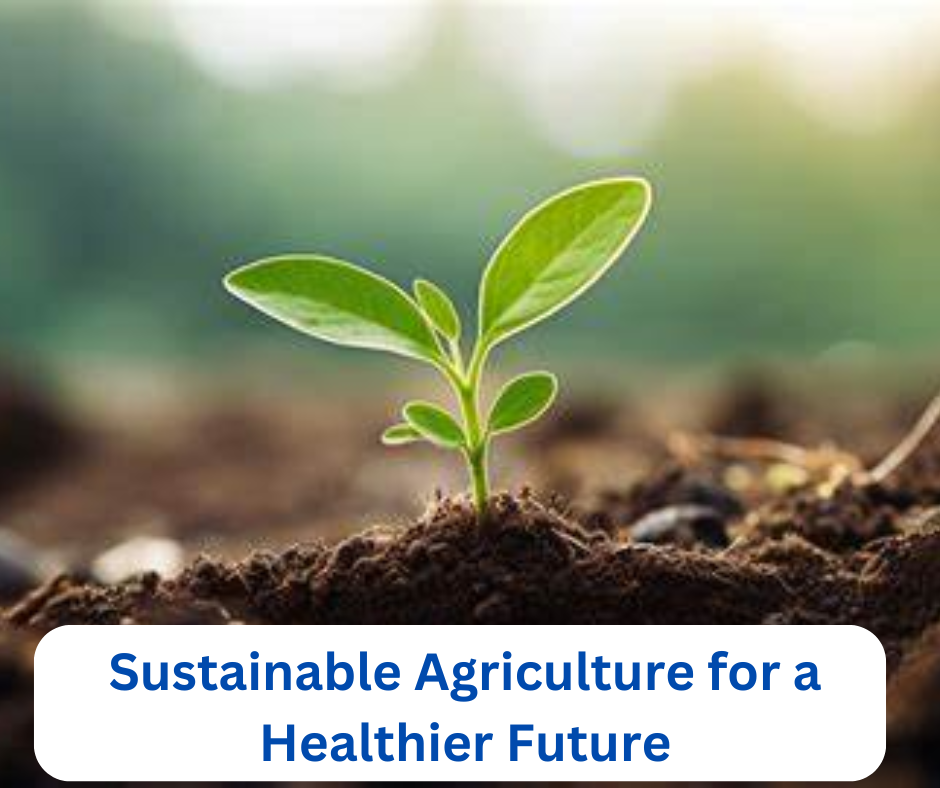Introduction to Sustainable Agriculture
In recent years, sustainable agriculture has gained significant attention as a key to ensuring a healthier and more secure future for our planet. This approach to farming emphasizes methods that protect the environment, public health, human communities, and animal welfare. By focusing on long-term agricultural practices, we can create a system that is both productive and sustainable.
What is Sustainable Agriculture?
Sustainable agriculture is a comprehensive method of farming that aims to meet current food needs without compromising the ability of future generations to meet their needs. It integrates three main goals: environmental health, economic profitability, and social equity. This balance ensures that farming remains viable in the long term.
Environmental Benefits of Sustainable Agriculture
One of the primary advantages of sustainable agriculture is its positive impact on the environment. Traditional farming methods often rely heavily on chemical fertilizers and pesticides, which can lead to soil degradation, water pollution, and loss of biodiversity. In contrast, sustainable practices promote:
- Soil Health: Techniques such as crop rotation, cover cropping, and reduced tillage help maintain and improve soil structure and fertility.
- Water Conservation: Efficient irrigation systems and practices like rainwater harvesting reduce water waste and promote efficient use of this critical resource.
- Biodiversity: Encouraging diverse plant and animal life supports ecosystem resilience and reduces dependency on chemical inputs.
Economic Viability of Sustainable Farming
Adopting sustainable agricultural practices can also lead to economic benefits. By reducing reliance on expensive chemical inputs and focusing on soil health, farmers can lower their production costs. Additionally, sustainable farms often tap into niche markets, such as organic produce, which can command higher prices. The economic stability of sustainable farms contributes to the overall well-being of rural communities.
Social and Community Impact
Sustainable agriculture also plays a crucial role in strengthening communities. By fostering local food systems, it helps ensure food security and supports local economies. Sustainable farms often engage in fair labor practices, ensuring safe working conditions and fair wages for workers. This social equity is vital for building strong, resilient communities.
Key Practices in Sustainable Agriculture
Several core practices define sustainable agriculture. These methods are designed to enhance productivity while minimizing negative environmental and social impacts:
- Agroforestry: Integrating trees and shrubs into crop and livestock systems enhances biodiversity and reduces erosion.
- Organic Farming: Avoiding synthetic chemicals and GMOs in favor of natural processes and materials.
- Permaculture: Designing agricultural ecosystems that are self-sufficient and sustainable.
- Integrated Pest Management (IPM): Combining biological, cultural, physical, and chemical tools to manage pests in an environmentally and economically sound manner.
- Conservation Tillage: Reducing tillage to maintain soil structure and organic matter.
Challenges and Solutions in Sustainable Agriculture
Despite its many benefits, sustainable agriculture faces several challenges. These include:
- Knowledge Gaps: Farmers may lack information on sustainable practices. Extension services and educational programs are essential to bridge this gap.
- Financial Constraints: Initial investments in sustainable methods can be high. Financial incentives and support programs can help mitigate these costs.
- Policy Barriers: Inadequate policy frameworks may hinder the adoption of sustainable practices. Advocacy and policy reform are necessary to create an enabling environment.
Case Studies: Success Stories in Sustainable Agriculture
Numerous farms around the world have successfully implemented sustainable agricultural practices. For instance:
- Polyface Farm in Virginia, USA: Known for its innovative rotational grazing and organic farming techniques, Polyface Farm has become a model for sustainable agriculture.
- Navdanya in India: Founded by Dr. Vandana Shiva, Navdanya promotes biodiversity and organic farming, supporting farmers in transitioning to sustainable methods.
- Sekem in Egypt: This initiative integrates biodynamic farming with social and economic development, demonstrating the holistic benefits of sustainable agriculture.
The Future of Sustainable Agriculture
The future of sustainable agriculture looks promising as more farmers, consumers, and policymakers recognize its benefits. Innovations in technology, such as precision farming and sustainable biotechnology, are set to enhance the efficiency and effectiveness of sustainable practices. Furthermore, increased consumer awareness and demand for sustainably produced food are driving positive change in the agricultural sector.
Conclusion
Sustainable agriculture is essential for ensuring a healthier, more resilient future for our planet. By embracing practices that protect the environment, promote economic viability, and support social equity, we can create a sustainable food system that benefits everyone. The shift towards sustainable agriculture is not just an option; it is a necessity for the well-being of future generations.
